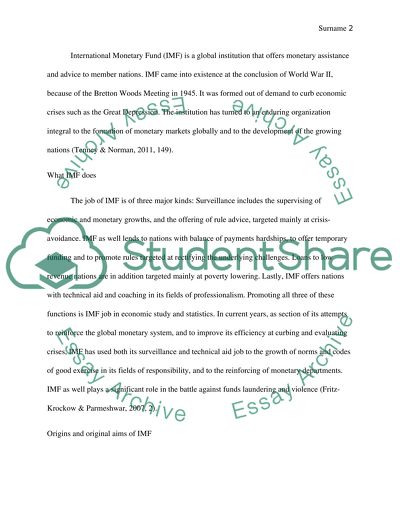Cite this document
(“THE ROLE OF IMF IN THE INTERNATIONAL POLITICAL ECONOMY AND HOW IT Research Paper”, n.d.)
THE ROLE OF IMF IN THE INTERNATIONAL POLITICAL ECONOMY AND HOW IT Research Paper. Retrieved from https://studentshare.org/macro-microeconomics/1493015-the-role-of-imf-in-the-international-political
THE ROLE OF IMF IN THE INTERNATIONAL POLITICAL ECONOMY AND HOW IT Research Paper. Retrieved from https://studentshare.org/macro-microeconomics/1493015-the-role-of-imf-in-the-international-political
(THE ROLE OF IMF IN THE INTERNATIONAL POLITICAL ECONOMY AND HOW IT Research Paper)
THE ROLE OF IMF IN THE INTERNATIONAL POLITICAL ECONOMY AND HOW IT Research Paper. https://studentshare.org/macro-microeconomics/1493015-the-role-of-imf-in-the-international-political.
THE ROLE OF IMF IN THE INTERNATIONAL POLITICAL ECONOMY AND HOW IT Research Paper. https://studentshare.org/macro-microeconomics/1493015-the-role-of-imf-in-the-international-political.
“THE ROLE OF IMF IN THE INTERNATIONAL POLITICAL ECONOMY AND HOW IT Research Paper”, n.d. https://studentshare.org/macro-microeconomics/1493015-the-role-of-imf-in-the-international-political.


